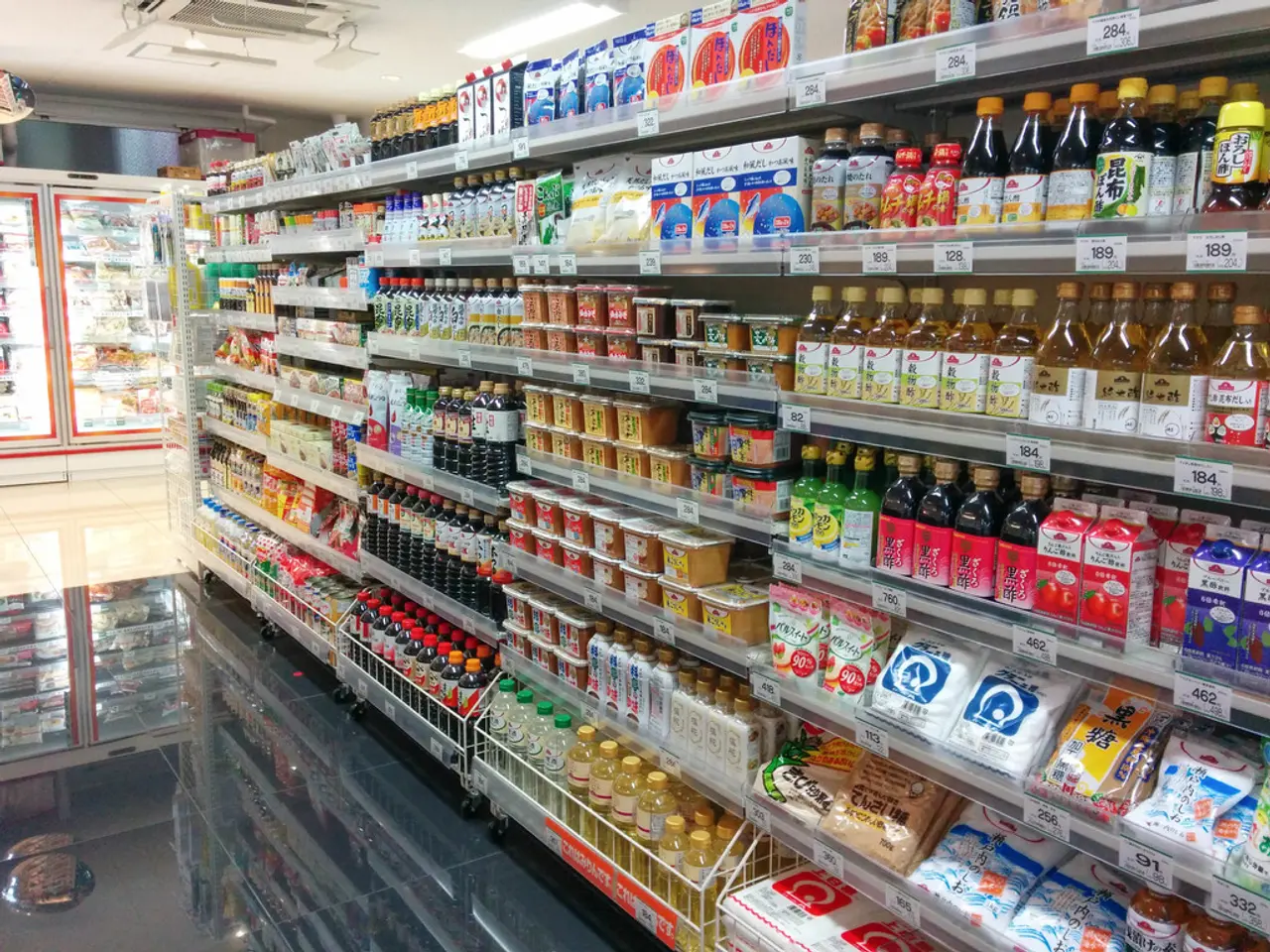Grocer's suppliers increasing prices by 20% due to tariffs, according to Metro CEO's statement
In the latest reporting quarter, Metro Inc., a leading Canadian retailer, recorded nearly $5 billion in sales, marking a 5.5% increase compared to the same period the previous year [1]. This growth is particularly notable as sales of Canadian products at Metro outpaced the total sales figure.
The food inflation reading for the quarter stood at 3.1%, a trend that can be attributed in part to the ongoing trade war between the United States and other countries [2]. As a result, approximately a fifth of Metro's grocery store suppliers have increased prices, putting pressure on the retailer.
To mitigate these impacts, Metro is engaging in negotiations with suppliers to ensure the best possible outcomes for customers, who are increasingly price-sensitive in these economically challenging times. The company is also seeking alternative suppliers outside the U.S. to minimize tariff impacts [1].
Despite these efforts, Metro has not ruled out the possibility of price increases for customers. This cautious approach is driven by the need to balance cost absorption and careful price adjustments to maintain competitiveness [1].
The 'Buy Canadian' movement remains strong among consumers, driven by the trade war and a shift in sentiment towards the United States. This trend is benefiting Metro, as sales growth at its discount-branded stores like Food Basics continues to outpace that of its flagship Metro stores [1].
The Canadian government is taking steps to protect domestic industries and encourage the consumption of Canadian products. Retaliatory tariffs have been imposed on U.S. goods, and alternatives such as export restrictions on critical minerals and energy products, and banning U.S. firms from certain government contracts, are being considered [1].
Prime Minister Mark Carney is working on a more permanent trade deal with the United States to remove or minimize the impacts from tariffs [3]. This deal, if successful, could provide long-term relief for businesses like Metro Inc.
In the meantime, Metro is leveraging government trade arrangements like USMCA, which preserves tariff-free trade on over 85% of Canada-U.S. trade as of August 2025 [1]. The company is also focusing on supply chain efficiency improvements to lower operational costs [1].
In the words of Metro's CEO, Eric La Fleche, these latest numbers are "solid results" [1]. As the trade landscape continues to evolve, Metro Inc. is demonstrating resilience and adaptability, positioning itself well to navigate the challenges and opportunities ahead.
References: [1] Metro Inc. Q2 2025 Earnings Release. (n.d.). Retrieved from https://www.metro.ca/en/investors/financial-results-and-presentations/quarterly-results [2] Canadian Food Inspection Agency. (2025). Food inflation: Understanding the factors behind rising food prices. Retrieved from https://www.inspection.gc.ca/food/labelling/food-composition/food-inflation/eng/1489428993383/1489428994848 [3] Government of Canada. (2025). Canada-United States-Mexico Agreement (CUSMA). Retrieved from https://www.international.gc.ca/trade-commerce/trade-agreements-accords-commerciaux/agr-acc/cusma-acuc/index.aspx?lang=eng
- Amidst the escalating trade war and changing consumer sentiment, the economy's influence on Metro Inc.'s pricing decisions for customers is noticeable, as they balance cost absorption with careful price adjustments to stay competitive.
- Despite the ongoing focus on 'Buy Canadian' and the resulting benefits for Metro, the impact of sports-related tariffs on Metro's grocery store suppliers, as well as the weather's influence on food inflation, add complexity to the company's strategic planning for the future.







